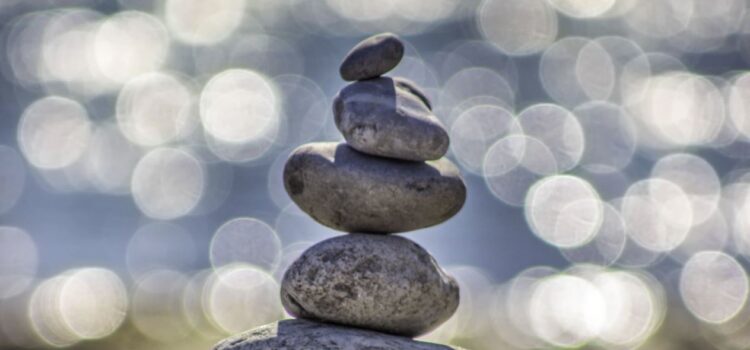

This article is an excerpt from the Shortform book guide to "Tao Te Ching" by Lao Tzu. Shortform has the world's best summaries and analyses of books you should be reading.
Like this article? Sign up for a free trial here .
What are the nine Taoist virtues? What are the four levels of faith? How does one become a Taoist master?
According to Stephen Mitchell’s translation of the Tao Te Ching, there are nine Taoist virtues that make up the “Supreme Virtue.” By embodying those Taoist virtues, a master is able to embody the four levels of faith.
Keep reading to learn more about the Taoist virtues and masters.
The Taoist Virtues
A master of Taoist practices embodies the Taoist virtues or the “Supreme Virtue.” The Supreme Virtue requires:
- The ability to raise and care for others
- The ability to disengage from self-consciousness and live with the wonder of a child
- The ability to be at peace with the reality in which you are living
- The ability to keep your mind focused on engaging with the present
- The ability to have something without possessing it
- The ability to act without expecting a particular outcome
- The ability to lead without controlling the actions of others
- The ability to handle important matters by letting things happen naturally
- The ability to understand the world around you by detaching from your own perspective
By embodying these Taoist virtues, masters engage with the deepest of the four levels of faith:
1) The deepest level of faith is the Tao. If you engage with this level, your actions are dictated by the Tao. You aren’t concerned with your personal perspective or biases, making decisions based upon the flow and call of the universe only. For example, if you see a homeless man fall in the street in front of you, you may feel called by the moment to go and help him up, ignoring your personal biases about homeless people.
2) If one isn’t in touch with the Tao, the next level is goodness, or the desire to make the world a better place. If you engage with this level, your actions are dictated by your wish to change the “natural order” of things, causing you to ignore the energy of the Tao as you’re too involved with your own desires. For example, if a homeless man falls in front of you, you may consider if your energy is best spent helping this man or doing another form of charity, potentially causing you to miss the moment and ignore the person in need.
3) If one isn’t in touch with goodness, the next level is morality, or the need to determine what is “right” and what is “wrong.” If you engage with this level, your actions are dictated by your personal perspective on “good” and “evil,” causing you to ignore the Tao as you’re too involved with your perspective. For example, if a homeless man falls in front of you, you may consider the man’s background and character before helping them, potentially causing you to determine that they’re “bad” or not deserving of your assistance.
4) If one isn’t in touch with morality, the next level is ritual, or surface-level shows of faith. If you engage with this level, your actions are empty as they’re nothing more than repeating actions that have been dictated to you by others. These could range from “traditions” to meaningless “prayers.” For example, if a homeless man falls in front of you, you may walk right past them because helping them isn’t your “responsibility” as long as you engage with your typical rituals such as prayer or meditation.
The Master of Taoist Practices Versus the Average Person
A master of Taoist practices only concerns themselves with the Tao. By focusing solely on the objective truths of the universe, they avoid falling victim to their own prejudices. Conversely, the average person often engages with the more shallow levels of faith, often using their shows of faith to bolster their own biased view of the world.
Example: A religious person may believe that they are a part of God’s chosen “group,” and that, by engaging in prayer and other religious traditions, they’ve earned the favor of a higher being. They may use their participation in these shows of faith to reinforce their personal belief that they are superior to those who aren’t a part of God’s chosen “group.”
A master is powerful because they don’t seek power. By not searching for more power, they are able to use the strength that the universe has given them effectively. Conversely, the average person is never powerful because they’re always seeking power, blinding them to the strength the universe has already given them.
A master never leaves anything incomplete because they never do anything without the universe’s prompting. In being selective with their actions in this way, they never take on more than they can accomplish. Conversely, the average person frequently leaves things incomplete because they take on more than they can accomplish.

———End of Preview———
Like what you just read? Read the rest of the world's best book summary and analysis of Lao Tzu's "Tao Te Ching" at Shortform .
Here's what you'll find in our full Tao Te Ching summary :
- What the natural order of the universe is
- How the "Great Mother" offers energy to all beings
- How you can achieve harmonious living







Hello, I am keenly interested in learning more of what has been written yet I struggle with understanding how Virtues are described and not simply expressed and defined with a single word and that then being (living) virtuous(ly) is having the ability to do something and not simply ‘Being’ which then dissolved to situational ethics. Please assist with clarifying. Thank you.
You will need to practice Qi Gong for a “time”. At some point these questions will dissolve into knowing. The “time” depends on the Tao. If this doesn’t make sense, you are in good company. No one understands.